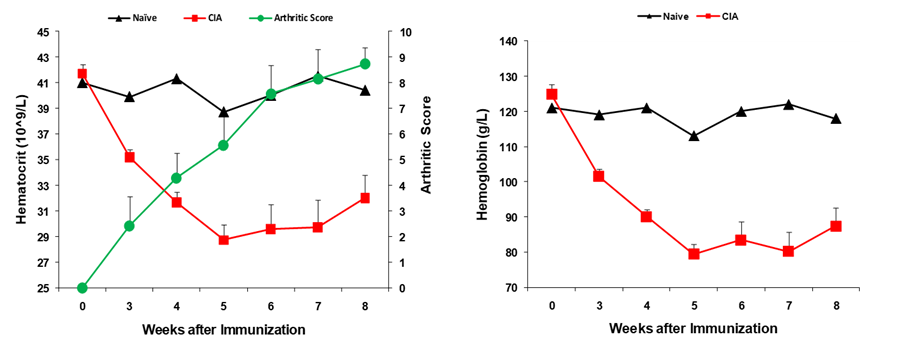


Rheumatoid arthritis (RA) is a systemic inflammatory disorder characterized by chronic inflammation of the synovium, which over time results in damage to the joints, leading to pain and disability. It occurs in approximately 1% of adults, and approximately 2.5 times more women than men are affected. Immune factors involved in the progression of RA are mainly manufactured by CD4+ T cells, monocytes, macrophages, or fibroblasts.
Cytokines produced by these cells such as tumor necrosis factor α (TNF-α) and interleukin-1 are the keys to the damaging cascade that ultimately triggers the production of matrix metalloproteinases and osteoclasts resulting in irreversible damage to soft tissues and bones.
Understanding of molecular pathogenesis of RA has enabled development of innovative agents to modulate specific components of the disease progress for early intervention or treatment. Various experimentally induced RA rodent models have been used extensively as the mainstay for evaluation of those therapeutic candidates.

hematocrit and hemoglobin vs. arthritic Score-anemia association